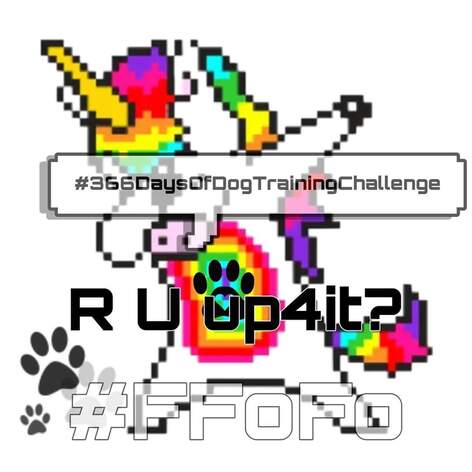|
Next up in the series of considering the dog holistically is diet.
Diet affects behaviour; Running jokes across social media are that "millennials" are obsessed with treating their dogs as "fur babies' ' and that by being obsessed with their nutritional intake we could effectively be harming them. One article the other week by the' Telegraph' headlined its article with,"stop feeding your dogs homemade diets, charity warns". (Linked under References). Reading this article was a waste of time with a misleading headline, it was a clear case of an article space need's filling. What can it be filled with? With research there are lots of conflicting statistics from blogs and websites written by non researchers that all claim different percentages of diets fed to dogs. All you have to do is pop over to Google to see this for yourself. There's lots of inflammatory headlines that one type of food is bad for a dog and harmful and again absolutely none of them agree or come from science based research. Looking at the dog holistically, every single dog is an individual with dietary needs and food preferences, just like humans and there is scientific research to back this up as well as testing foods and changes in dog's based upon different diets. We also know that diet affects behaviour and this is something that many dog owners (guardians) are becoming acutely aware of but it is still not general knowledge. All over social media, no matter which one you will quickly find, enrichment aesthetic accounts with dog food, people posting all of their dogs meals, people arguing about food for dogs and quality. This is all irrelevant for this blog; we are simply looking at how diet affects behaviour and not at brands or types of food. "A dog's behaviour is not only controlled by the environment, but also by genetic, cognitive and physiological factors. Miklosi. A, (2014). Physiological factors in turn can be affected by nutrition. Bosch. G, et al, (2007). The brain is full of an amazing communication system and within this communication are neurotransmitters and hormones and both of these components can be affected by the nutrition that a dog receives and when the brain is affected negatively or positively we can see these effects manifest through behaviour. In looking at the dogs welfare this is why it is so important to ensure that our individual dog is receiving the best possible nutrition that they can receive. The gut microbiome is the most important area of looking at the dogs diet as this area is needed to remain as undisrupted as possible, a healthy gut microbiome means that the brain communication system should be working well. When the gut microbiome is affected, the healthy balance is disrupted and many changes can occur such as inflammation, infections and the production of serotonin 90% of which takes place in the small intestine can be affected. Tizard. I. R, et al (2018). When serotonin is affected, cortisol can rise and the brain can become affected and stop or hinder normal communication and functioning. (Refer back to my brain blog last week). As well as infections and inflammation affecting the dog negatively just as it does in humans. When we have an infection or inflammation we may not be ourselves and our behaviour is altered and sadly this is the same for our dogs. A study with shelter dogs of the same breed was conducted in Italy alongside a veterinarian behaviourist and a dog handler, 18 dogs were classified as aggressive and 11 fearful and 13 dogs exhibiting normal behaviours and fed them all the same food. They then did a second study and worked with three shelters with different breeds and different food. The results showed that there were marked differences in the gut biome of the dog's with no reported behavioural issues and the dog's reported to have aggressive or fearful traits. Mondo, E. et al. (2020). So considering the dog holistically, if we were to work with a cross section of professionals, vets, nutritionists and behaviourists we can then look at the whole dog and have a fecal exam to ensure that the dogs gut is healthy and if it isn't, then work with a nutritionist to get the right balance for the gut biome and work in tandem with a behaviourist to help to change the emotions driving the behaviours. References https://www.telegraph.co.uk/.../stop-feeding-dog.../ Miklosi, A. (2014). Dog Behaviour, Evolution, and Cognition. Oxford University Press. Pp. 16 Bosch, G., Beerda, B., Hendriks, W.H., van der Poel, A.F.B., Verstegen, M.W.A. (2007). Impact of nutrition on canine behaviour: current status and possible mechanisms. Nutrition Research Reviews, vol. 20, pp.180-194. Harju, C. (2016) Epsilon Archive for Student Projects, Welcome to Epsilon Archive for Student Projects - Epsilon Archive for Student Projects. Available at: https://stud.epsilon.slu.se/ Tizard IR, Jones SW. The microbiota regulates immunity and immunologic diseases in dogs and cats. Vet Clin North Am Small Anim Pract. (2018) 48:307–22. doi: 10.1016/j.cvsm.2017.10.008 Mondo, E. et al. (2020) Gut microbiome structure and adrenocortical activity in dogs with aggressive and phobic behavioral disorders, Heliyon. U.S. National Library of Medicine. Available at: https://www.ncbi.nlm.nih.gov/pmc/articles/PMC6994854/
0 Comments
Leave a Reply. |
BlogFor Mutts & Mischief If you enjoy my blogs and
would like to support my work, you can support me by buying me a Coffee! Archives
July 2024
|
Or are you looking for support and would like to get to know us better?
If the answer is yes then click the image below to join my free facebook group. What is Mutts & Mischief Community?
So it is what it says on the tin! Its a community that is international of Clients and Colleagues with the most supportive and friendly people on the planet. Dog Trainers and Behaviourists from all over the world!
Why did I set up such a mammoth group?
I wanted to have a group exclusively for Clients. For support and to meet uo and build on friendships from Classes or One to Ones. I want Clients to see you are not alone with your Dog and the problem you maybe having that you are not the first and won't be the last! I wanted a safe place where Clients could trade stories good and bad in one place for free!
I also wanted a safe place for the Trainers and Behaviourists I mentor within Social Media Platforms.
Why do this for free?
Because when I say I offer an holistic service I really do. It isn't about the money it is about you and your dogs. You and your dogs are all that matter.
So I wanted to encourage people to do homework and build better quality relationships with their dogs. So 3 years ago I had a mad idea and set up the 100 days of dog training challenge. Once a day people would spend 5 minutes plus training their dog. Recording it and uploading their video onto the Community. Every participant recieved a Certificate.
What I didn't count on was how many Professionals wanted to join and how fast word would spread. So this year 2020 I set up a 366 days of dog training challenge.
We have Clients in America, Greece, Norway, Denmark and Spain. We have Trainers from Greece, Norway, Isle of Wight, America and many more Countries. As well as dog trainers and trainee behaviourists: I mentor all over the world.
So again yes this group is free. It is still primarily for clients and for people to get to know me but we also have the challenge running. Again for free. So if you want to join click the image below to be taken to the group directly. See you there!
So it is what it says on the tin! Its a community that is international of Clients and Colleagues with the most supportive and friendly people on the planet. Dog Trainers and Behaviourists from all over the world!
Why did I set up such a mammoth group?
I wanted to have a group exclusively for Clients. For support and to meet uo and build on friendships from Classes or One to Ones. I want Clients to see you are not alone with your Dog and the problem you maybe having that you are not the first and won't be the last! I wanted a safe place where Clients could trade stories good and bad in one place for free!
I also wanted a safe place for the Trainers and Behaviourists I mentor within Social Media Platforms.
Why do this for free?
Because when I say I offer an holistic service I really do. It isn't about the money it is about you and your dogs. You and your dogs are all that matter.
So I wanted to encourage people to do homework and build better quality relationships with their dogs. So 3 years ago I had a mad idea and set up the 100 days of dog training challenge. Once a day people would spend 5 minutes plus training their dog. Recording it and uploading their video onto the Community. Every participant recieved a Certificate.
What I didn't count on was how many Professionals wanted to join and how fast word would spread. So this year 2020 I set up a 366 days of dog training challenge.
We have Clients in America, Greece, Norway, Denmark and Spain. We have Trainers from Greece, Norway, Isle of Wight, America and many more Countries. As well as dog trainers and trainee behaviourists: I mentor all over the world.
So again yes this group is free. It is still primarily for clients and for people to get to know me but we also have the challenge running. Again for free. So if you want to join click the image below to be taken to the group directly. See you there!
Proudly powered by Weebly



